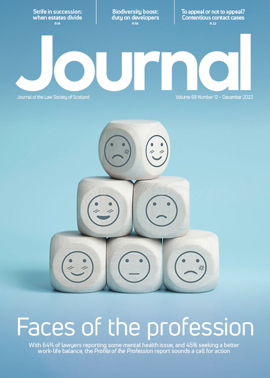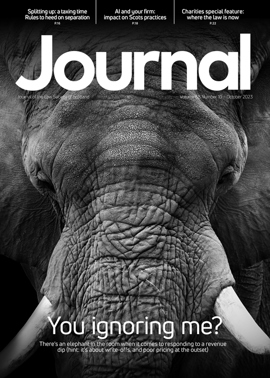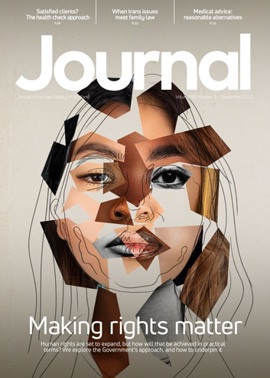What's the (group) chat on privacy rights?
In BC v Chief Constable, Police Service of Scotland [2019] CSOH 48, the petitioners (10 police officers), who were part of closed WhatsApp group chats, were held to have no reasonable expectation of privacy in respect of messages that were sent to the groups. Given their roles as police officers, no right to privacy existed in terms of article 8 of the ECHR or at common law.
Background
The petitioners sought orders from the court finding and declaring that the use of messages sent by them via WhatsApp for the purpose of bringing misconduct proceedings in respect of allegations of non-criminal behaviour on their part was unlawful and incompatible with their right to respect for their private and family life in terms of article 8. They also sought to interdict certain persons within Police Scotland from conducting or maintaining any misconduct proceedings in respect of allegations on the basis of, or involving the use of, the messages.
The messages had been discovered during an investigation into sexual offences, in which the petitioners were of no interest. The messages, which contained offensive content, were found within two closed “group chats” of which the petitioners were members.
Decision
Despite refusing the petition, Lord Bannatyne held that a right to privacy did exist in the common law of Scotland. However the officers could have “no reasonable expectation of privacy” (paras 166 and 173) in relation to the messages, given their content and the standards expected of police officers.
The court held that as privacy was a fundamental right, it was highly likely that it existed in Scots common law, and if it did not exist, Scottish and English law would be entirely different on a fundamental matter, which seemed inherently unlikely. Moreover, Lord Bannatyne considered that the existing case law supported a “nascent recognition of a common law right of privacy” (para 124).
Given the nature of a closed WhatsApp group, an ordinary member of the public using it could have a reasonable expectation of privacy. However, the relevant legislation and conduct regulations which applied to police officers restricted such a right for them. So far as a police officer was concerned, the content of the messages could inform the question of whether the officer was entitled to a reasonable expectation of privacy. Objectively, the duty incumbent on the members of the WhatsApp group to take action against the conduct of other constables, which had fallen below the standards set out in the Police Service of Scotland (Conduct) Regulations 2014, materially undermined the contention of reasonable expectation of privacy. Having regard to all the circumstances, the court held that no right of privacy existed for the petitioners in terms of article 8 or at common law.
The court also held that, in the circumstances of the current case, there was a clear and accessible basis upon which the police could disclose to regulatory bodies information recovered in the course of criminal investigations. Lord Bannatyne ruled that whilst not all matters listed in article 8(2) were engaged, the matters of “public safety” and the “prevention of disorder or crime” were. He also held that it was essential for the purposes of successful policing that the police maintain the confidence of the public. If the public lost confidence in the police, public safety would be put at risk as the police cannot operate efficiently without public confidence.
In these circumstances, had the petitioners had a legitimate expectation of privacy, the foregoing factors would have caused the court to consider that the messages could nevertheless be disclosed to the disciplinary body, and that such disclosure would have been proportionate.
Comment
This is a significant decision in the context of human rights law in Scotland. It is clear that so far as the court is concerned, police officers, by the very nature of their occupation, face restrictions in respect of their right to privacy, and that such restrictions are both necessary and proportionate.
Whilst the current case is concerned with the privacy rights of police officers, it serves as a reminder that all human rights issues are always highly fact-sensitive. Moreover, the ripple effect of this judgment may also have repercussions for the privacy rights of other regulated professionals.
The court’s decision on this matter may not be the final chapter in this area of law, and someone in the “privacy group chat” may yet be typing a new message...
Regulars
Features
Briefings
In practice
In this issue
- The Judicial Disappointments Board
- Hiding in plain sight
- Food for thought on the drug front
- Salmon farming law must change
- People on the move - Aug 19
- Managing compliance to drive legal practice success
- New practice area: financial services – asset management
- Resilience: your flexible friend
- Appreciation: William Denys Cathcart Andrews







